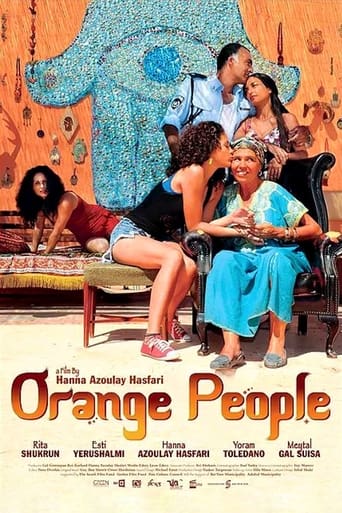

It seems that when the Israeli cinema turns its attention to the country's Moroccan community, it likes to dwell on the community's embrace of the supernatural-- in the previous films "Sh'chur" and "My Lovely Sister," and in "Orange People" as well. The writer/director has explained that "orange people" is a metaphor for "creative people." In this movie, the creativity gene passes from generation to generation, but in each generation it's expressed differently and the result is intergenerational tension. The linchpin of the movie is Rita Shukrun, who impressively portrays the matriarch, a sleeping prophet a bit like America's Edgar Cacye. There is a conflict between her two daughters, who are both more concerned with creating cuisine than with fortune- telling, but the script chooses to postpone the revelation of the reason for that conflict; I think that in doing so, the script sacrifices some traction. Another problem is that the major male character is rather a cipher, missing the magnetism that the script seems to attribute to him. But on the positive side the movie offers lush visuals, including location shots from Morocco, and the drama is seasoned with plentiful humor and intriguing dream sequences. Everything is integrated into a vision in which the progress of the generations is, like walking, a sequence of repeatedly losing and regaining balance.
... View More